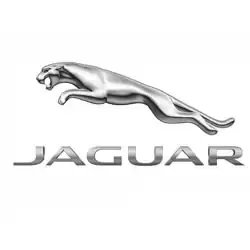Jaguar XJR Tire Pressure
Most common recommended tire pressure for Jaguar XJR is 34 psi based on year of production, trim and OEM tire size, but it maybe different for older models. It is imperative to confirm the exact tire inflation for your Jaguar XJR to ensure safety on the road. Always refer to your vehicle owner's manual for the correct tire pressure designated by vehicle's manufacturer.
Select your Jaguar XJR production year to see its recommended tire inflation.
| Model Year | Front Tires | Rear Tires |
|---|---|---|
| 2017 Jaguar XJR | 34 psi | 34 psi |
| 2016 Jaguar XJR | 34 psi | 34 psi |
| 2015 Jaguar XJR | 34 psi | 34 psi |
| 2014 Jaguar XJR | 34 psi | 34 psi |
Recommended Tire Pressure for Jaguar XJR
The importance of maintaining the recommended tire pressure in a Jaguar XJR cannot be overstated, as it plays a pivotal role in ensuring the optimal performance, safety, and fuel efficiency of the vehicle. Proper tire inflation is crucial for maintaining the structural integrity of the tires, thus preventing premature wear and extending their lifespan. For high-performance vehicles like the Jaguar XJR, which is designed to deliver exceptional speed and handling, the correct tire pressure is integral to achieving the precise control and responsiveness expected from such a luxury sports sedan. Furthermore, tires inflated to the manufacturer's recommended levels offer better traction and more even tire wear, leading to safer driving conditions and enhanced comfort during high-speed journeys. Additionally, properly inflated tires can significantly reduce rolling resistance, which directly impacts fuel consumption, helping to lower operating costs and minimize the environmental footprint of the vehicle. Therefore, regular checks and adjustments to maintain the correct tire pressure are essential for any Jaguar XJR owner looking to preserve the vehicle's performance, safety, and economy.

All listed guides, data and/or calculations are for informational purposes only. TirePressure.com does not warrant or make any representations regarding the accuracy of or the results of the use of this information. Always refer to vehicle owner's manual for the correct tire pressure configuration.